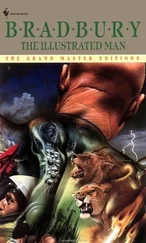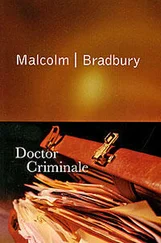Malcolm Bradbury - The History Man
Здесь есть возможность читать онлайн «Malcolm Bradbury - The History Man» весь текст электронной книги совершенно бесплатно (целиком полную версию без сокращений). В некоторых случаях можно слушать аудио, скачать через торрент в формате fb2 и присутствует краткое содержание. Жанр: Современная проза, на английском языке. Описание произведения, (предисловие) а так же отзывы посетителей доступны на портале библиотеки ЛибКат.
- Название:The History Man
- Автор:
- Жанр:
- Год:неизвестен
- ISBN:нет данных
- Рейтинг книги:3 / 5. Голосов: 1
-
Избранное:Добавить в избранное
- Отзывы:
-
Ваша оценка:
- 60
- 1
- 2
- 3
- 4
- 5
The History Man: краткое содержание, описание и аннотация
Предлагаем к чтению аннотацию, описание, краткое содержание или предисловие (зависит от того, что написал сам автор книги «The History Man»). Если вы не нашли необходимую информацию о книге — напишите в комментариях, мы постараемся отыскать её.
The History Man — читать онлайн бесплатно полную книгу (весь текст) целиком
Ниже представлен текст книги, разбитый по страницам. Система сохранения места последней прочитанной страницы, позволяет с удобством читать онлайн бесплатно книгу «The History Man», без необходимости каждый раз заново искать на чём Вы остановились. Поставьте закладку, и сможете в любой момент перейти на страницу, на которой закончили чтение.
Интервал:
Закладка:
It is pleasant to hold him inside, with the heat of the gasfire on the skin of her side, her leg. And later it is pleasant to make up the daybed, and get into it, and fold into each other again, to feel sensation, to let pieces of self come alive. It is pleasant, too, to wake in the night against flesh, to stir, to touch and press the adjoining body until it connects with yours once more. It is pleasant in the morning to lie in bed, while Leon goes out and fetches the Observer, and to read one section while he, undressed and back in bed, reads the other. It is pleasant to spend Sunday walking, looking at paintings in a gallery, lunching in a pub, going to look at the river. It is pleasant to walk along the shopping streets on a Sunday, past the bright displays, and the mirrors where you see yourself reflected, bright-looking yourself, with bright Leon, with his stark face and long hair, among all the other young people. It is pleasant to go back to the bedsitter, and put the fire on once more, and begin again the touching and feeling and the delicate tactical motions that bring pleasure, which is pleasant, and to try on the dresses you've bought, and some of Leon 's clothes and costumes, and smoke, and feel. It is only not pleasant to be told that Leon, who is busy with parts, will be busier; he is going off for five months on tour, with Much Ado About Nothing, to Australia and the United States. 'I don't know what I'll do when you're gone,' says Barbara. 'I'm not the only one like me,' says Leon, pulling her down. So it is depressing to wake up early on Monday morning, while Leon still sleeps, and let yourself out, and make your way with your case and your two dress bags to the bus, and the tube, and get to Waterloo for the busy morning train. It is hard to find a seat, and there is rain again, soaking the London suburbs, driving across the woods and fields. The magazine is open on Barbara's knee, but she does not look at it. She sits with her mouth open, her fur coat kept on, her face staring through the window. The train slides slowly down the platform at Watermouth. When it stops, she picks up her luggage and gets out. Howard is waiting in the concourse, in his leather jacket, a neat, new, brown jacket, the car keys in his hand. He kisses her lightly, and takes her bag. 'Did you have a good time?' he asks. 'Yes,' she says, 'quite good. I bought two dresses.'
They go outside, and get in the minivan; the wipers move backwards and forwards in front of them. 'How are the kids?' asks Barbara. 'Fine,' says Howard. 'They've gone to school?' says Barbara. 'Yes, I took them,' says Howard. 'Was Felicity all right?'
'She seems to get on very well with them,' says Howard. 'I think she likes them,' says Barbara, 'they like her. She takes an interest.'
'Yes,' says Howard. 'Did Myra get off?' asks Barbara. 'Yes,' says Howard, 'she's gone back to the farm house.'
'To Henry?' asks Barbara. 'No,' says Howard, 'Henry's not there. He's staying with Flora Beniform.'
'She should have kept him,' says Barbara. 'She may come to think that,' says Howard, 'since she doesn't know what to do with herself.'
'What did you do with yourself?' asks Barbara. 'I worked,' says Howard. 'No fires, no accidents?'
' asks Barbara. 'No,' says Howard. They are driving down the hill; they can see the turn into the terrace; the cranes on the building sites turn and creak. 'I'll put my dresses on for you,' says Barbara. 'Tonight,' says Howard, 'I've got to go straight up to the university. Your train was late.'
'Is anything happening?' asks Barbara. 'No,' says Howard, 'just usual. I have two funny little girls coming in to read me an essay.' They turn into the rainwashed terrace; Howard stops the van. He reaches in the back and lifts out the case. Barbara carries her two plastic bags to the front door; she gets out her key and unlocks it. The house smells dry and flat. 'Hello, Barbara,' says Felicity, coming out of the kitchen, wearing a butcher's apron, 'did you have a good shopping trip?'
'Yes,' says Barbara. 'Let me get you a cup of coffee,' says Felicity. 'No,' says Howard, putting down the case in the hall, 'if you want a lift up to the university, you'll have to come now.'
'Sorry, Barbara,' says Felicity, taking off the apron, 'but I've been very good. I've done lots of tidying up.'
'That's great,' says Barbara, 'Were the kids good?'
'Oh,' says Felicity, 'they're the sweetest kids ever. I'm really hooked on those kids. Do you want me to come back tonight?'
'Why not?' asks Barbara. 'I'd love to stay,' says Felicity, 'and I'm sure I'm useful.'
'Okay,' says Barbara, putting the dress bags down onto a chair. 'Stay a while. Do, that helps me. I can't do this place by myself.'
'Oh, good,' says Felicity, 'I love it here.' She casts a look at Howard, and goes out into the hall, to get her coat. 'Welcome back,' says Howard, pecking Barbara on the cheek. 'Bye now.'
Barbara stands in the hall as they go outside to the minivan. They get into it, and drive away, round the corner, up the hill. 'Isn't Barbara good?' says Felicity. 'Yes,' says Howard. 'You're angry,' says Felicity. 'No,' says Howard. They say nothing more until they have crossed town and are out on the dualled road, with the university coming into sight on the right. Then Felicity says: 'I thought she looked sad.'
'I didn't think so,' says Howard, 'she enjoys her weekends.'
'Did you enjoy yours?' asks Felicity. 'It had its pleasures,' says Howard. 'I don't really turn you on, do I?' asks Felicity. 'You don't appreciate me. You don't know how much I'm doing for you.'
'What are you doing for me?' asks Howard, stopping the van in the car park. 'A lot,' says Felicity, 'you'll see.'
'I can look after myself,' says Howard. 'You need support,' says Felicity, 'you're my cause.' Felicity gets out of the van, and walks toward the Student Union building; Howard gets out, locks it, and moves in another direction, toward Social Science. The students mill in the foyer; he gets into the lift. The lift doors open at the fifth floor; he gets out. He notices, on the information blackboard that faces the lift, a message has been scrawled in chalk, by one of the secretaries. He pauses to read it: it says, 'Dr Beamish has a snakebite and regrets he cannot meet his classes today.' He turns, and goes down the corridor towards his room. He can see, down the corridor, waiting for him, sitting on the floor, with their knees up, the two first-year students who came to him the previous Monday: the bright, bra-less girl, the fat, long-skirted one. They stand up as they see him coming, and pick up their books. 'Come on in,' he says amiably; the girls follow him into the room, and wait while he hangs up his coat behind the door. Then he sits them down, putting the fatter girl in the grey chair, for she is the one who will read her essay. He sits down in his own chair, and looks at them. The bright, bra-less girl, on the plastic chair, says: 'Dr Kirk, are you really a radical?'
'I am,' says Howard, 'but why?' The girls look at each other. 'There's a rumour around that they're trying to fire you,' says the bra-less girl, 'because you're such a radical.'
'Is there?' says Howard. 'Well, as it happens, they can't fire me for that. Only for gross moral turpitude.' The girls giggle and say, 'What's that?'
'Who knows, nowadays?' asks Howard. 'One story has it that it's raping large numbers of nuns.'
'Well,' says the fat girl, 'if they try, we'll stand by you.'
'That's very good of you,' says Howard. 'Have you found out who Hegel is yet?'
'Oh, yes,' says the bra-less girl, 'Do you want to hear about him?'
'I think we'd better stick to business and hear the essay,' says Howard. 'All right,' says the fat girl, 'but people say you're very nasty to students reading their essays to you.'
'You seem to be hearing a great deal about me,' says Howard, 'most of it hardly true. You read it, and see.' The girl pulls out an essay from between her books, and says, 'Well, you asked me to write on the social structure of imperialism.' She puts down her head, and starts reading; Howard, the serious teacher, sits in his chair as she reads, interrupting now and then with a comment, an amplification. 'Was that so nasty?' he says afterwards, when the discussion has finished. 'Not at all,' says the fat girl. 'Well,' says Howard, 'it was a reasonable essay.'
Читать дальшеИнтервал:
Закладка:
Похожие книги на «The History Man»
Представляем Вашему вниманию похожие книги на «The History Man» списком для выбора. Мы отобрали схожую по названию и смыслу литературу в надежде предоставить читателям больше вариантов отыскать новые, интересные, ещё непрочитанные произведения.
Обсуждение, отзывы о книге «The History Man» и просто собственные мнения читателей. Оставьте ваши комментарии, напишите, что Вы думаете о произведении, его смысле или главных героях. Укажите что конкретно понравилось, а что нет, и почему Вы так считаете.











